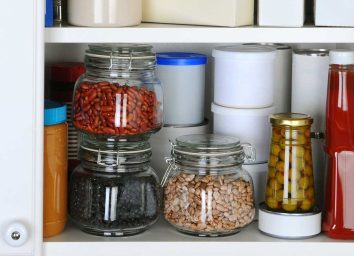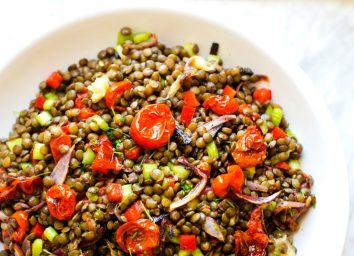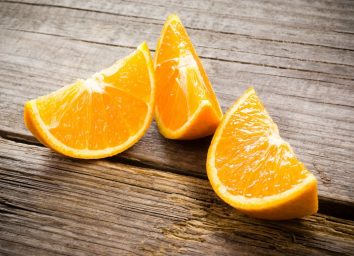20 Best Healthy Foods to Buy in Bulk
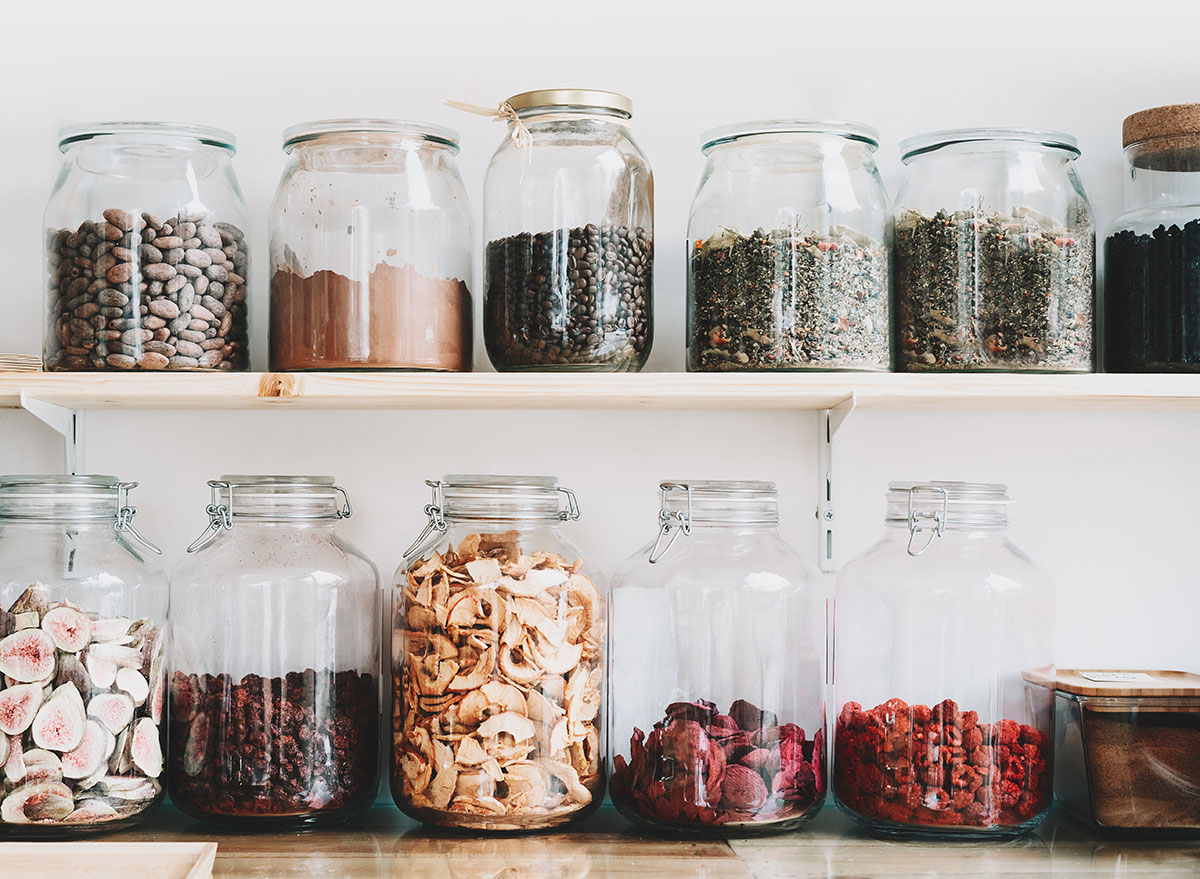
The coronavirus pandemic is starting to feel like one long cooking lesson. Rookies and pros alike became more adventurous in their culinary undertakings, whipping their own coffee and baking their own bread. Generally, we’ve all been sharpening our cooking skills. Partially out of necessity, yes, but partially because it feels good to nourish ourselves and our loved ones in some small way.
And with more cooking and trying to minimize our exposure to others at grocery stores, the importance of a well-stocked pantry has become more apparent than ever. Making an effective grocery list and meal planning can help a great deal in making sure our pantry always contains something we can turn into dinner. Buying things in bulk has also become important—investing in bulk staples with a long shelf-life can make a difference between weekly or monthly visits to the grocery store. The following are easily storable and useable foods that you should be buying in bulk on your next Walmart or Costco run.
Berries
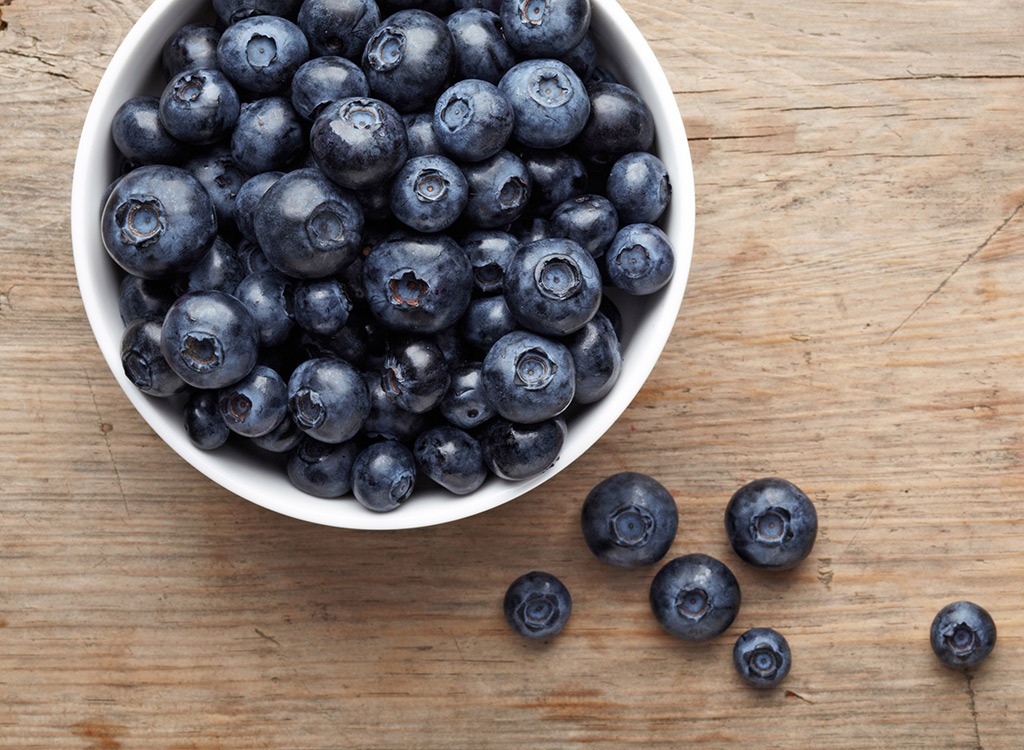
Berries like blueberries, strawberries, raspberries, and blackberries, are loaded with all sorts of health benefits. They’re packed with polyphenols, natural chemicals with powerful properties, like the ability to stop fat from forming. Anyone who’s ever had a strawberry knows firsthand that they’re at their ripest, sweetest, and juiciest in summer when they’re in season. However, when fresh berries are out of season, they’re going to be more expensive and lower in quality. During the rest of the year, frozen berries are a great alternative, because they’re usually frozen at peak ripeness.
How to store them: If berries are in season, buy in bulk and freeze whatever you can’t eat right away. You’ll have a huge stash of sweet, good-for-you fruit on hand whenever a craving hits. In the winter months, opt for frozen berries, which you can also buy in bulk at better prices.
Nuts

You might think nuts are a food to eat sparingly because they’re full of fat, but many nuts found in the average supermarket, like these healthy nuts, are great for weight loss because of the nutrients and healthy fats they contain. Omega-3 fatty acids and polyunsaturated fats, for example, are both found in many tree nuts and have the ability to activate genes that improve insulin metabolism and actually reduce the overall fat your body stores.
How to store them: In addition to being good for you, nuts are often much cheaper to buy in bulk than in small quantities. If you leave them out at room temperature, they have a tendency to go rancid after a while, but they’ll easily keep for weeks (or months) and still retain their delicious flavor and excellent nutritional properties when stored in the fridge or freezer.
Brown Rice
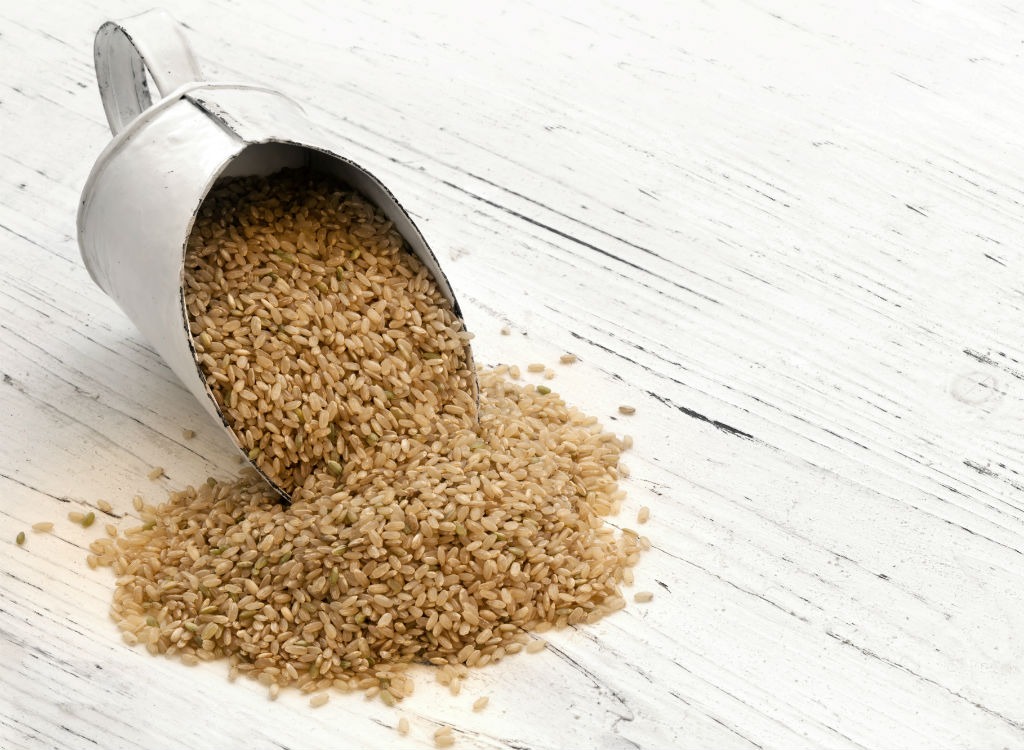
This healthy staple has a much better nutritional profile than its white counterpart, and it keeps almost indefinitely on the shelf. And there’s several reasons it’s such a go-to among healthy eaters and dieters: it’s loaded with B vitamins, a natural source of long-lasting energy; it boasts essential micronutrients like manganese, phosphorous, selenium and magnesium; and packs plenty of fiber, which can keep your blood sugar in check and cravings for junk food at bay.
How to store it: Make sure to store brown rice in an airtight container to keep it free of dust, insects, and other contaminants that can work their way into your dry goods if not properly sealed.
Oats

Gluten-free, full of soluble fiber and downright cheap, whole oats are an item you should have around the house all the time. Use them for baking, as a healthier filler for meatloaf or crab cakes, or for overnight oatmeal. However you put them to use, they’ll do their amazing work of keeping your heart healthy, reducing your risk of diabetes and lowering blood pressure—which is why we’ve named them one of our 7 Healthiest Foods on the Planet. In addition to being an overall health superstar, whole oats are a great food to include in any healthy weight loss diet as they have also been shown to increase hormones in the body that help to control appetite.
How to store them: Oats will last for years when stored on your pantry shelf at room temperature. Just be sure to keep them in an airtight container to keep out any bugs, dust, or other unwanted contaminants.
Quinoa

Though cooked and used like a grain, quinoa is a really a seed—a super seed that’s one of the only plant sources of all essential amino acids. Use it as a side dish for lean meats and veggies, in soups or cold salads in place of pasta, or as part of a main dish as an excellent vegetarian source of protein. One cooked cup of quinoa has about 8 grams of protein—about the same as in a small piece of roast turkey! The complete protein found in this miracle seed will keep you full and satisfied longer, leaving you less likely to give in to the urge to snack or overeat throughout the day.
How to store it: Like rice, uncooked quinoa lasts months on the shelf as long as stored in a dry place in an airtight container, making it a great item to buy in bulk, especially if you’re trying to trim down.
Dried Beans
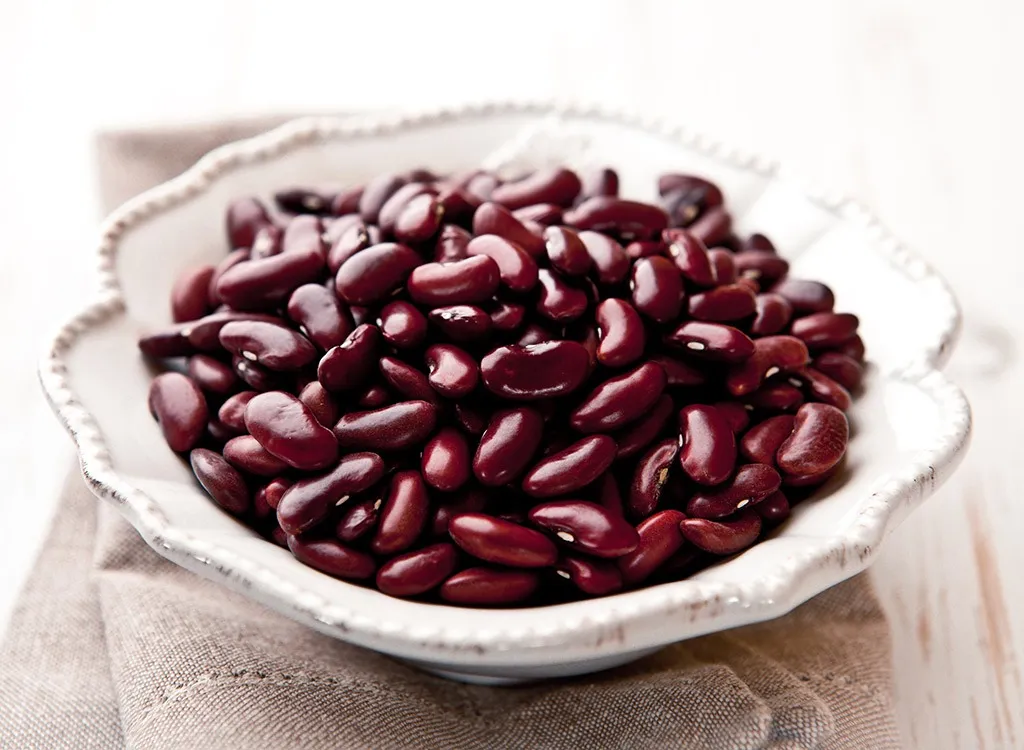
Beans should be an essential item in any health-conscious person’s pantry. And while the canned version can be loaded with extra sodium and other additives, dried beans have none of that unwanted junk, but all of the fiber and nutrients you need. Dried black beans make our list of the 8 Foods You Should Eat Every Day, mainly because they’re so full of antioxidant compounds called anthocyanins, which have been shown to improve brain function. And whether you favor black beans or kidneys, favas, limas or lentils, you’ll be making a good choice since all beans are high in protein and fiber and low in saturated fat and calories.
How to store them: Keep your favorite varieties in the pantry at all times and buy in bulk to save even more money—they last ages when kept sealed and in a cool, dry place.
Olive Oil

A great, all-purpose oil, extra-virgin olive oil can be used for cooking as well as fresh dishes like salads. Its versatility makes it an ideal health food; it’s easy to reap the benefits when you can use it in almost any dish. And the health benefits of EVOO are numerous: it’s touted for its high quantities of monounsaturated fats and ability to protect the body against debilitating diseases like breast cancer and Alzheimer’s, among other super powers.
How to store it: Olive oil is also often sold in large bulk sizes, so if this is your go-to cooking oil, it’s worth buying in large quantities—you’ll save big bucks. Stash a large drum in your pantry and keep a small bottle near the stove for easy access; simply refill the small bottle whenever it runs low.
Coconut Oil

Like olive oil, its tropical cousin is sometimes sold in large sizes that can save you money. If you take advantage of its multitude of uses—it can be used for just about anything but deep frying, including as a moisturizer—you should definitely buy in bulk. Coconut oil contains lauric acid, a type of fat that converts into energy more easily than many other types of fat—meaning your body will burn it off rather than storing it around your waist.
How to store it: This oil is shelf stable—it will melt and become liquid at around 76 degrees. But in both its liquid and solid states, it can last for up to 2 years as long as it’s kept out of direct sunlight. Some people choose to refrigerate coconut oil, and that’s fine, too. If you want to be extra cautious about your cooking oil, we recommend transferring it to a glass or BPA-free plastic container to avoid the possibility of any unwanted chemical compounds leaching into the oil over time.
Lean Meats
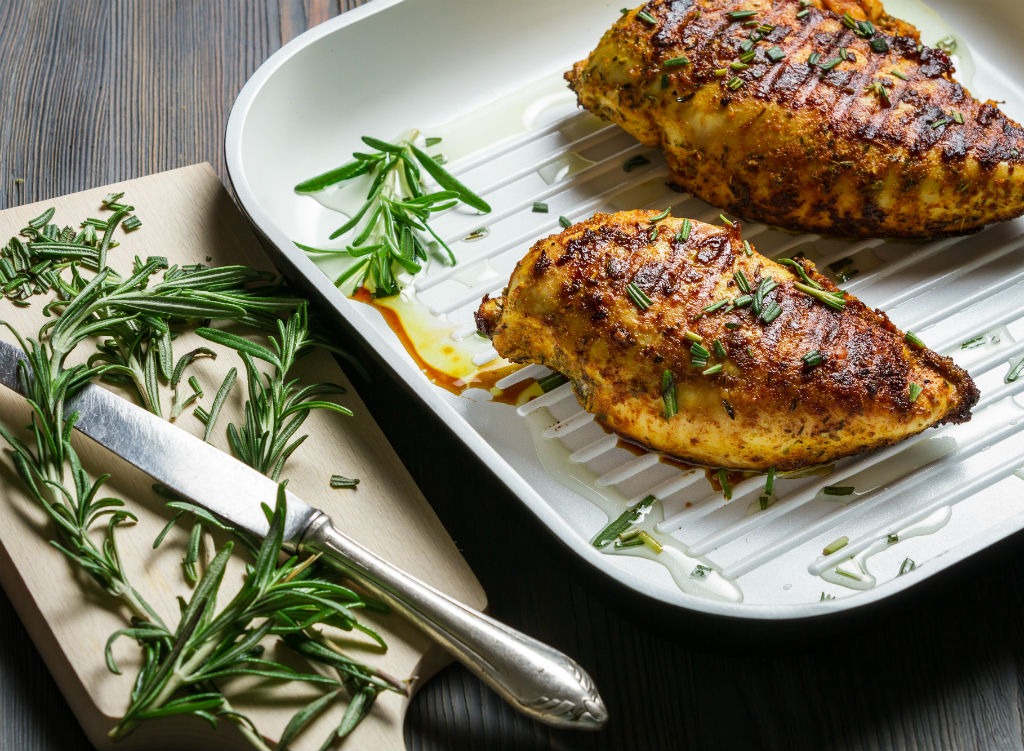
In many markets and butcher shops, certain cuts will go on sale for fantastically low prices—but only if you buy in bulk. Less fatty meat cuts like boneless, skinless chicken breasts are often more expensive than their fattier counterparts, like bone-in chicken thighs, so buying these healthier meats in bulk can save you big money.
How to store them: Of course, you won’t eat bulk amounts of meat over the course of one or two meals. So, once you purchase, put only the meat you plan to cook immediately (within the next 24 to 36 hours) in the refrigerator. Everything else should be stored in the freezer. To keep meat fresh and freezer-burn free as long as possible, wrap individual pieces tightly in plastic wrap, then place wrapped portions in plastic bags with a tight seal, like a zippered top.
Whole Spices
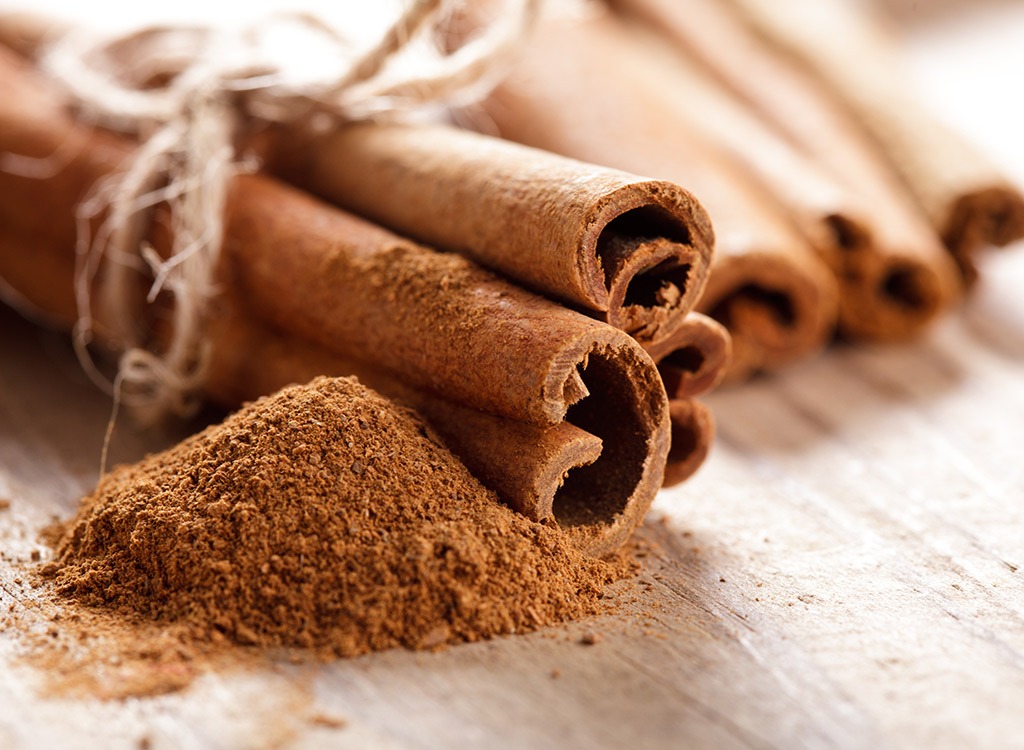
Pre-ground spices lose their flavor and freshness after about 6 months to a year—and you know that nutmeg has been sitting in your pantry for at least that long—but whole spices have a much longer shelf life. They also boost the flavor of your food without adding fat, calories, sugars, or salt.
How to store them: Buy whole spices in bulk, invest in a spice grinder (you can get a quality model that will last you years for a mere $20), and grind spices as needed to save money and add big flavors to your favorite foods. To keep spices fresh, make sure to store them in airtight containers and keep them in a cool, dry place.
Lentils
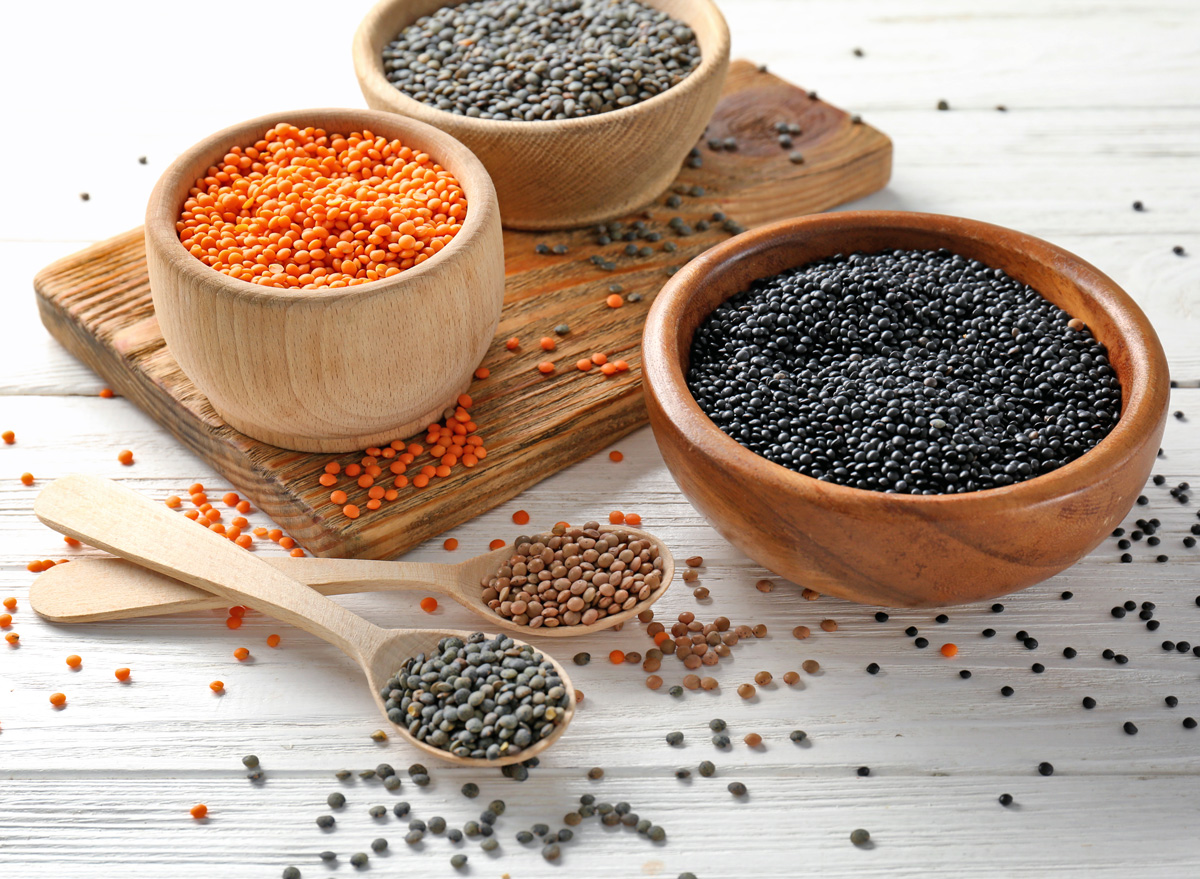
Much like dry beans, stocking up on lentils is a great way to make sure you always have a high-protein option on hand in your pantry. Lentils of all stripes—red, yellow, brown, Puy, black-eyed peas—are also filled with fiber, iron, and minerals, and they’re a great way for vegans to get those nutrients into their diets. Buying them in bulk makes sense because they have a long shelf life, while buying small packs of lentils can add up significantly.
How to store them: Dry lentils will last you up to a year, as long as you store them in airtight containers in a cool, dry place, like your pantry.
Pasta
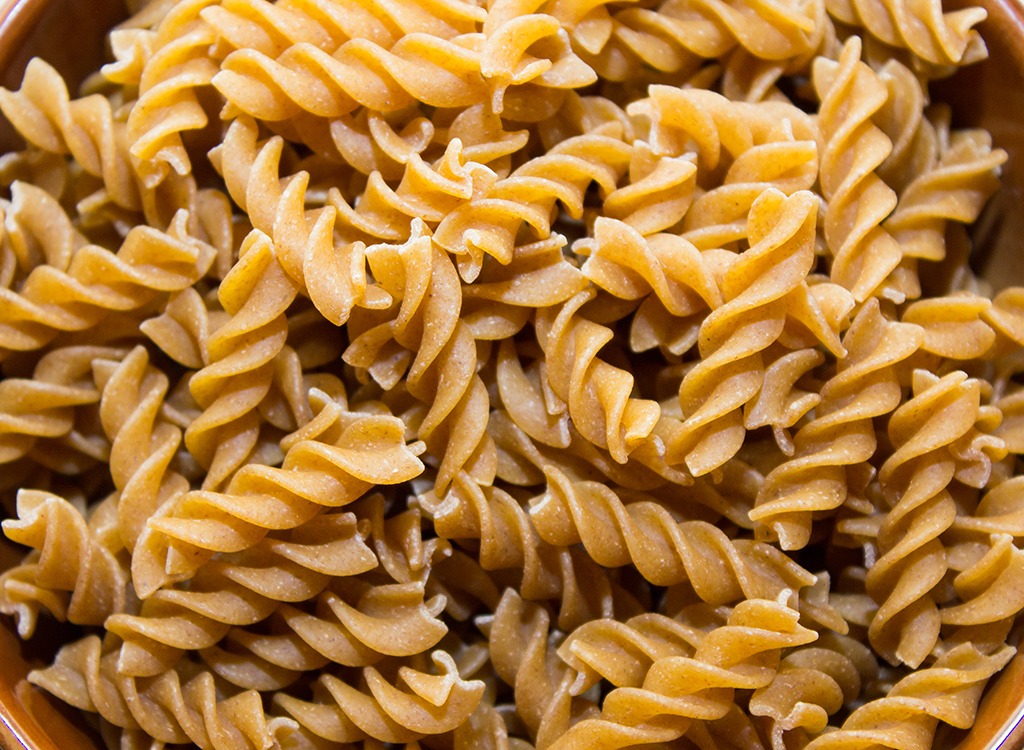
Pasta is usually considered the nemesis of healthy eating, but the reputation may be somewhat undeserved. Sure, whole wheat pasta is better for you than its white counterpart, because it still contains nutrients that are stripped from the white pasta during processing (like bran and germ). But white pasta is also fortified with vitamins and minerals, so as long as you eat it in moderation, it won’t necessarily derail your health goals.
How to store it: Whichever pasta you choose, buying it in bulk means you may be cutting the expenses by up to 50%. Another perk of buying pasta in bigger packaging and decanting it into an airtight container is that you won’t necessarily feel like you need to boil a whole pound of it every time you’re cooking. A 1-cup serving is a completely reasonable amount to satisfy your pasta cravings but still give you the opportunity to load up your meal with things other than carbohydrates.
Chia Seeds
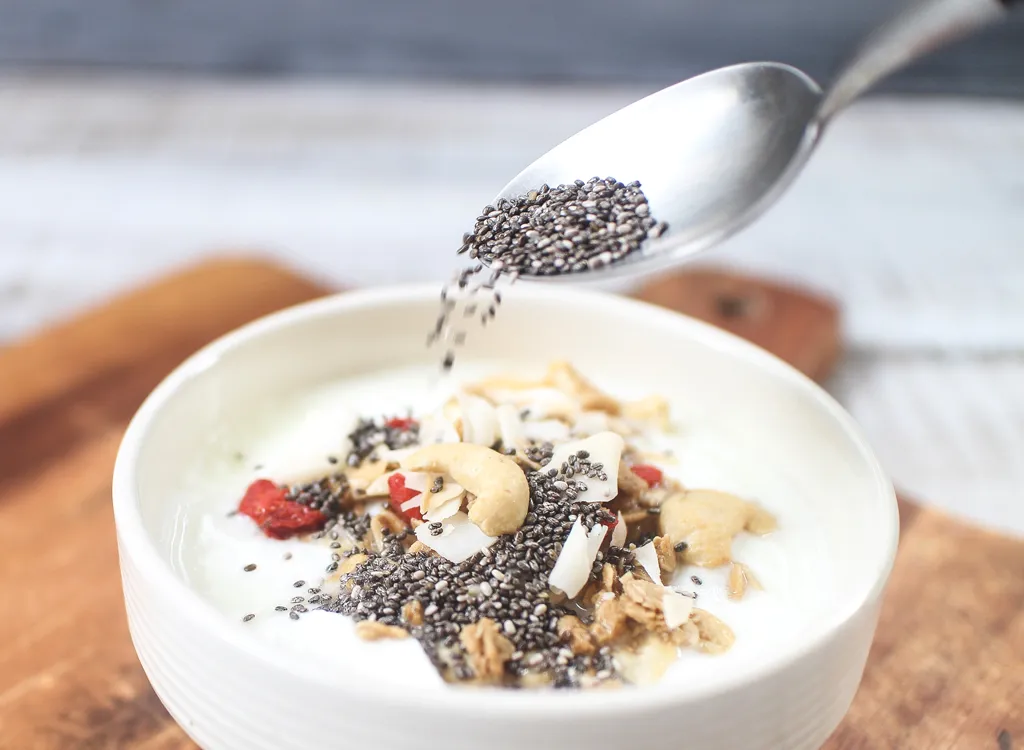
The tiny seeds are considered a superfood because they’re dense with nutrients that give you long-lasting energy. They can stabilize blood sugar, boost weight loss, keep hunger at bay, and even help keep your body hydrated throughout the day. They contain just 138 calories and less than 9 grams of fat, a whopping 10 grams of fiber, and 5 grams of protein per ounce. We love adding them to overnight oats and smoothies, especially post-workout.
How to store them: The superpower of chia seeds is reflected in their price, so nabbing a discount when buying bulk is a smart move for those that like to enjoy chia seeds daily. Store them in an airtight container in the pantry and they will last anywhere between from 2 to 4 years.
Nut Butters
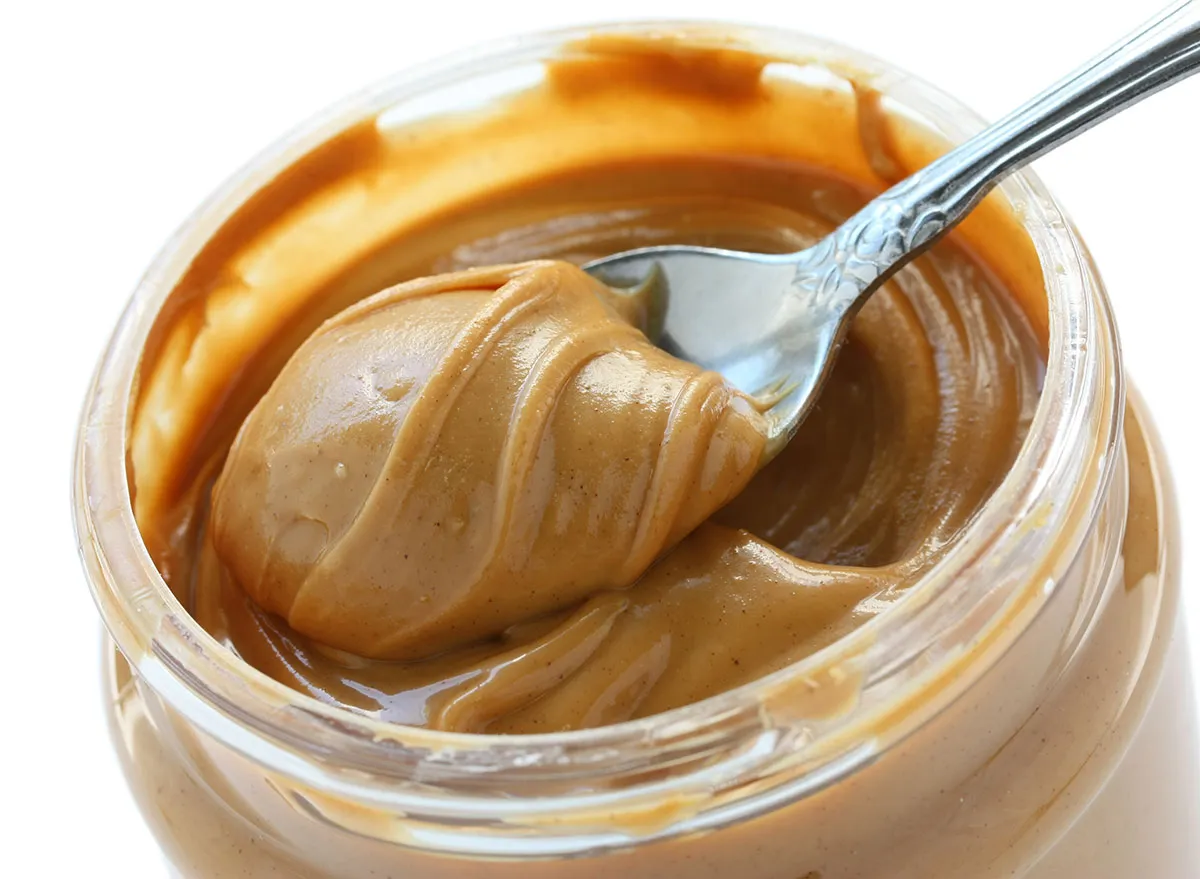
Nut butters like peanut and almond butter, and even tahini, are perfect bulk foods when you need to add a little bit of healthy fat or plant-based to your meals. Smoothies and breakfast oats benefit from their creaminess, but you’ll also be reaching for them when baking desserts or just craving a PB&J sandwich. The more ways you can think of using them, the better it is for you to buy them in bulk.
How to store them: Look for natural nut butter brands, as they’re less processed and therefore healthier than the highly commercial brands. You can find large tubs (several-pounds large) of natural nut butters on Amazon. Unopened, they will last about 12 months in the fridge, and once you open them, keep them refrigerated and finish them within 2 to 3 months.
Superfood Powders
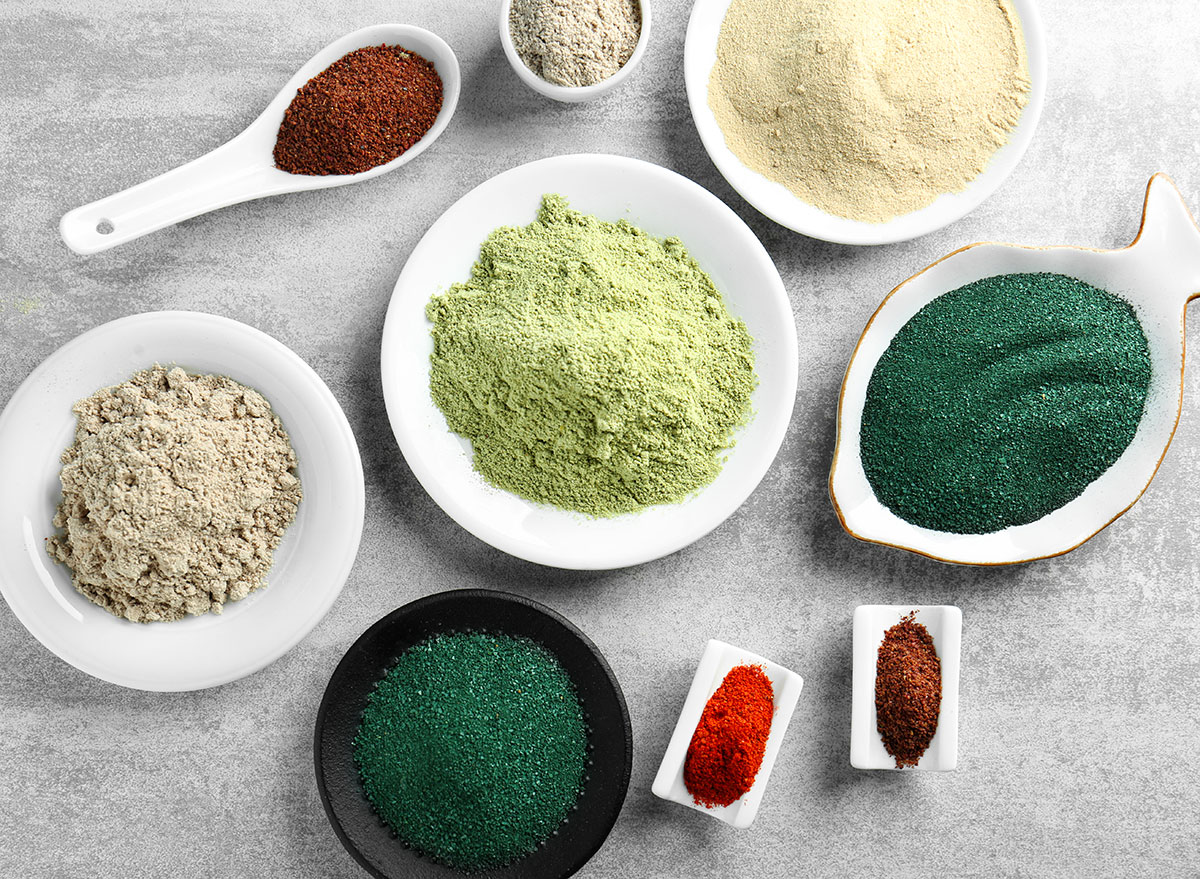
If superfood powders like hemp, matcha, goji berry, or moringa, are part of your wellness plan, you know that buying them in small packages doesn’t make any sense. “Superfood powders” is a broad term for any healthy supplement in powder form that is made from a nutrient-dense ingredient consumed for its health benefits. And in order to notice any health benefits from superfoods, they need to be consumed regularly for a significant period of time. If if you aren’t using them yet, give them a try—hoose a health goal you’d like to work toward and find the right superfood powder for you.
How to store them: If you’re using superfood powders in your smoothies and protein shakes, buying a large package can cut down the costs significantly. After you open them, keep your superfood powders in the fridge for optimal quality for up to 2 years.
Apples
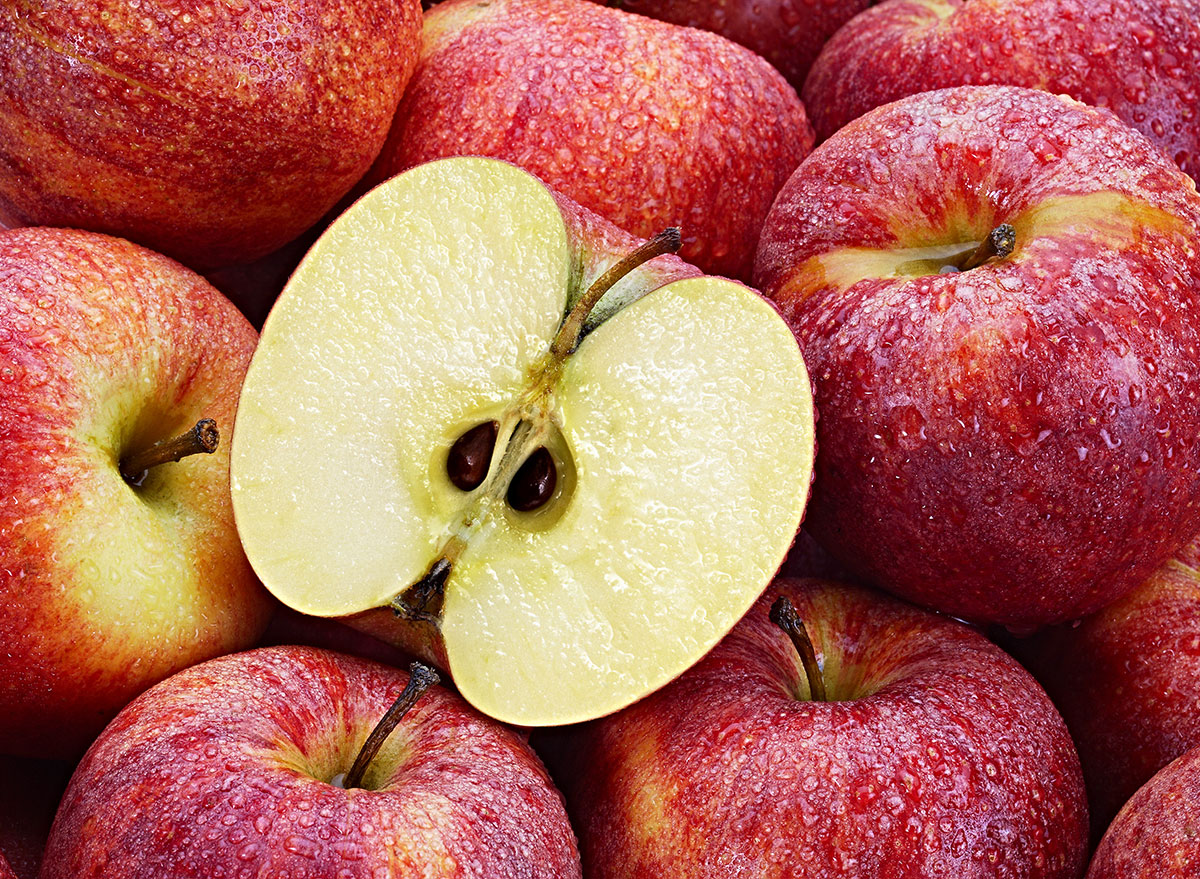
When it comes to snacking healthfully, it’s hard to beat a good old apple. Scientists at the University of Western Australia found that women who ate one small apple a day had a longer life expectancy than those who ate fewer than 15 apples a year. Plus, powerful antioxidants in apples have been shown to protect against certain cancers and heart disease, boost immune system function, and improve symptoms of asthma and overall pulmonary health.
How to store them: Make sure you don’t wash your apples before storing, or it could speed up the disintegration process. Generally, apples will last in a cool, dark place for a few weeks if not months, depending on the climate and the variety. You could also make applesauce or apple butter, and store it in the freezer for many months.
Cheese
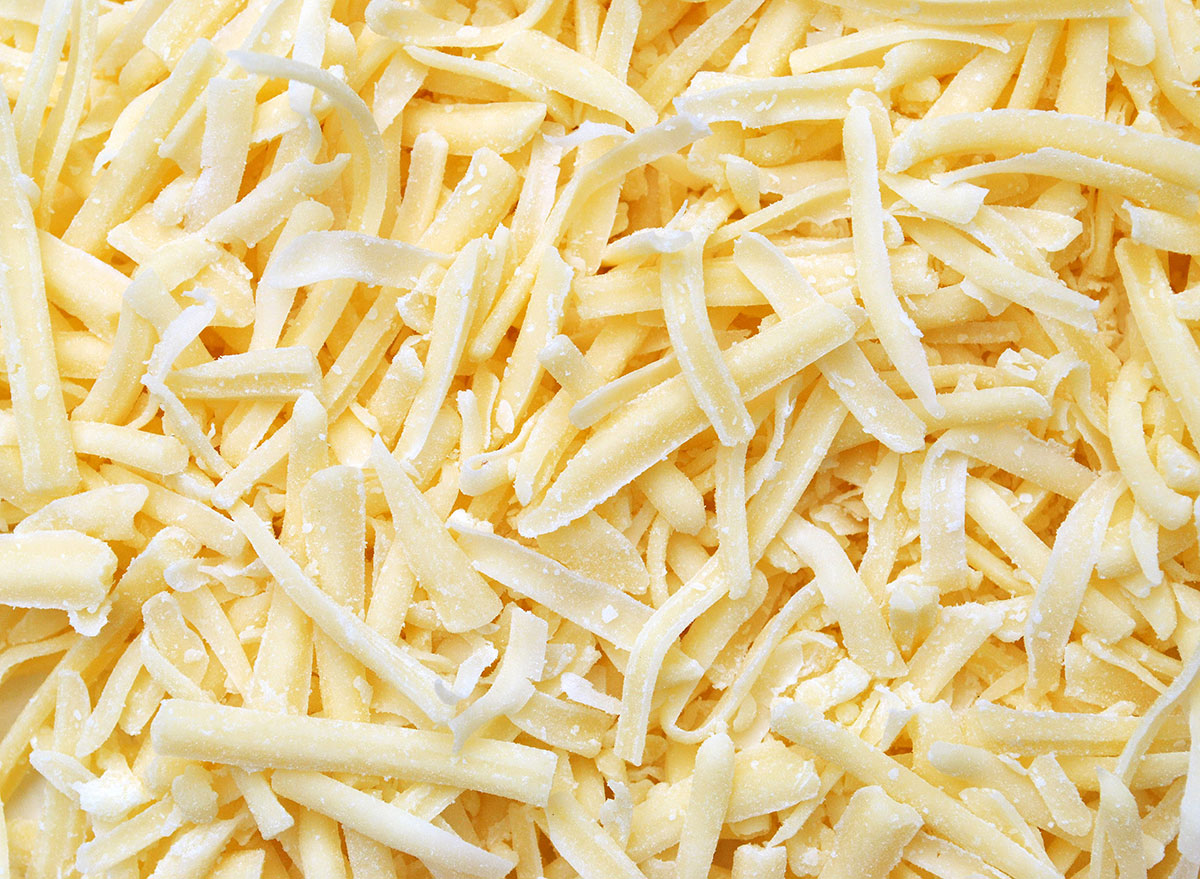
Shredded cheese is a delicious way to bulk up sauces, casseroles, and burrito bowls with extra fat and flavor. If you use a lot of shredded skim mozzarella or cheddar, buying them in bulk will save money and ensure you can improvise dinner with things you have on-hand. And making dinner at home always beats takeout.
How to store it: Store unopened packets of shredded cheese in the freezer for up to 12 months.
Frozen Veggies
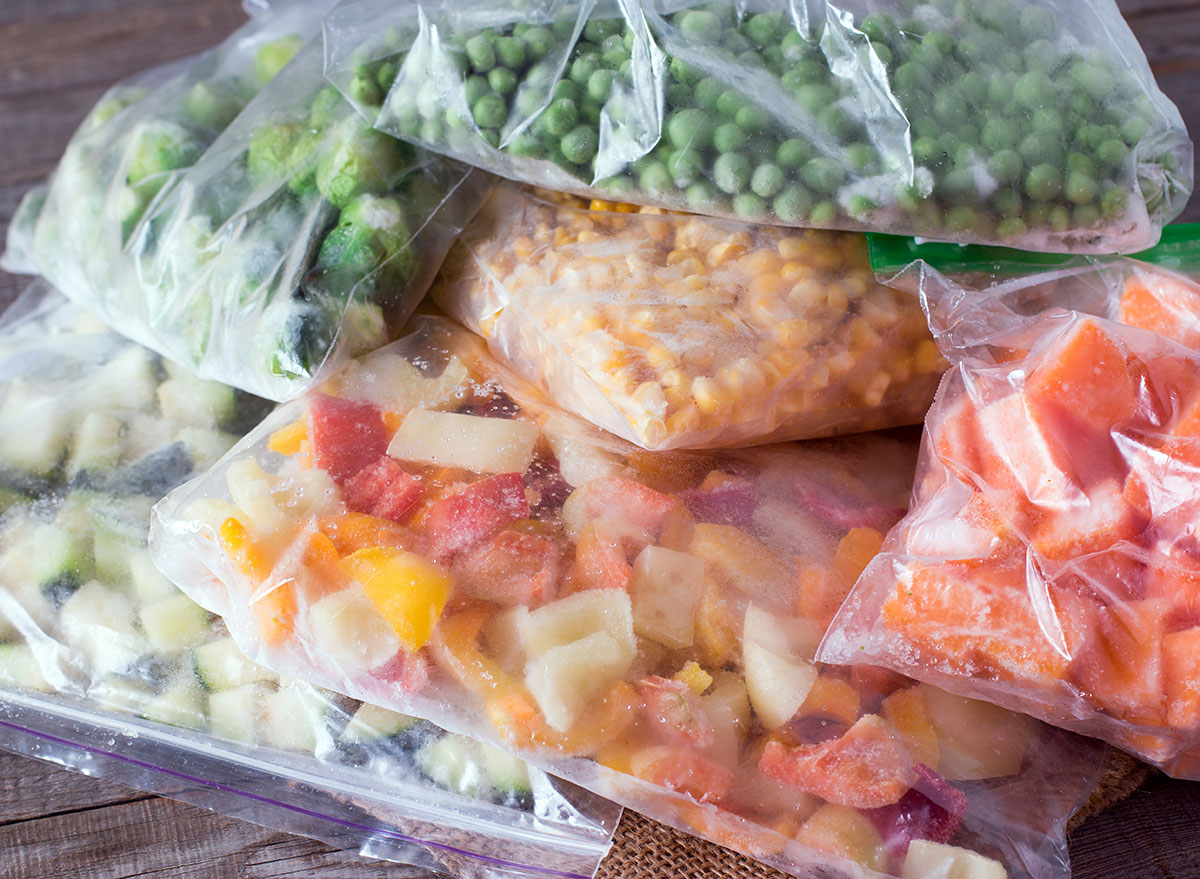
Vegetables are the most crucial food group for healthy eating, and adding them to every single meal you eat should be one of your wellness goals (yes, breakfast too). However, they’re also best when fresh, and will start declining soon in your fridge if unused. This is why, much like with frozen berries, frozen vegetables are a great alternative. They’re usually frozen at peak ripeness, when all of their best qualities can be preserved.
How to store it: Buying frozen vegetables in bulk is a no-brainer. Frozen peas and carrots can be used in soups, pastas, and things like shepherd’s pie, frozen spinach or kale can be added to literally anything that needs more greens, while frozen broccoli, zucchini, or butternut squash can serve as a quick side when thawed on a hot pan with some butter. They will last up to 12 months in the freezer.
Canned Tuna
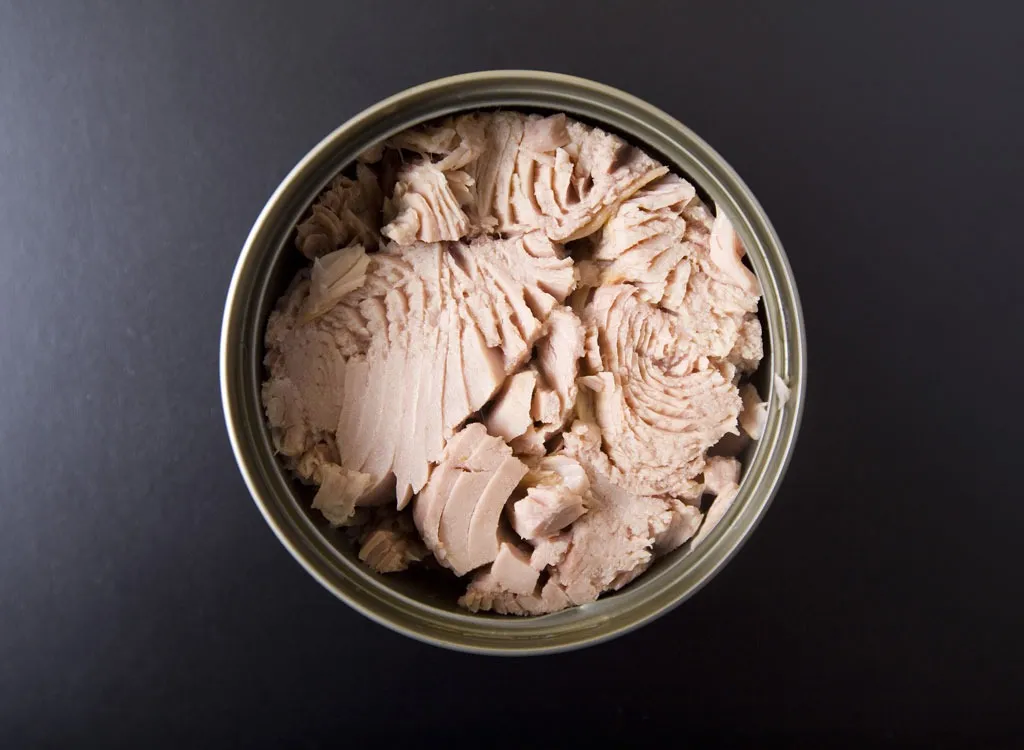
Buying cans in bulk will always come in handy when trying to save money. One good can to always have on hand for healthy eating is tuna. Try to find tuna in olive oil, which will preserve its freshness and juiciness. Add it to salads or wraps for a quick low-carb meal.
How to store it: An unopened can of tuna will last up to five years in the pantry.
Protein Powder
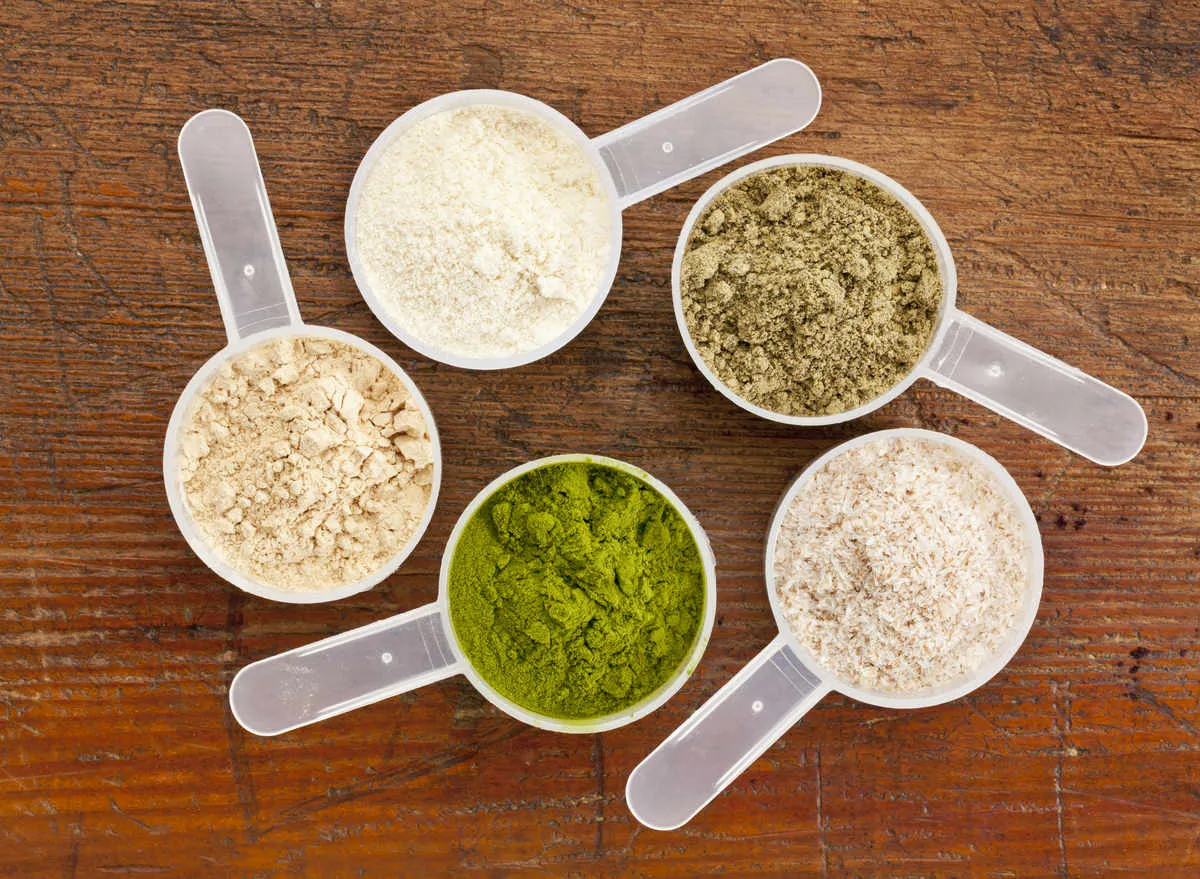
Protein powders, if used, are used on a regular basis. That means that your breakfast shake probably gets a scoop of it daily. But high-quality protein powders can be costly, and to offset some of those expenses, buying bulk packages of things like whey or pea protein powder is a great idea.
How to store it: Keep your protein powder in a cool, dry place like your pantry. Most will last anywhere from 8 to 18 months. If you’ve had your protein powder for a while, and you’re not sure if it’s still good to use, get our tips for spotting expired protein powder.
